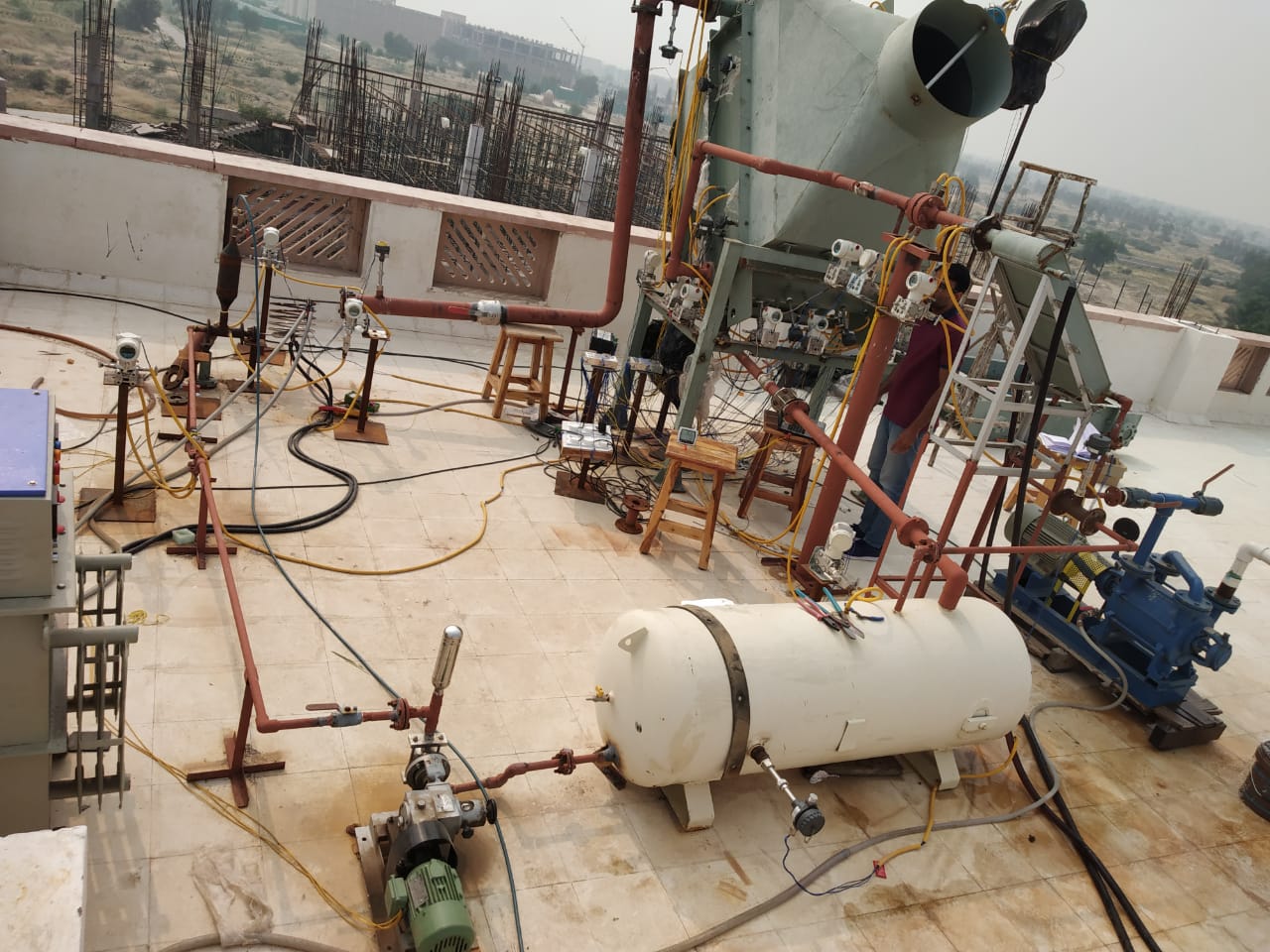
- The study investigated the effects of coil orientation on local heat transfer distribution, pressure drop, and critical heat flux during flow boiling
- The end application of the research is the development of solar thermal desalination system and multiphase flows visualization
- There are many industrial applications of Multi-Electrode Sensor system
JODHPUR, 24-April-2023: Indian Institute of Technology Jodhpur researchers found out a technique to measure the boiling and condensation heat transfer using Infra-red thermal imaging technique. The main objective of the research was to visualize the fluid flow and temperature distribution in multiphase flows and also to measure the heat transfer rate and heat transfer coefficient during boiling and condensation. The researchers have developed an in-house multi-electrode sensor system for the tomography of liquid-gas flows and efficient desalination process using vacuum evaporation process and boiling system.
Dr. Hardik Kothadia and Dr. Arun Kumar R from Department of Mechanical Engineering at IIT Jodhpur along with their students Mr. Sarvjeet Singh, Mr. Arvind Kumar, Mr. Bikash Pattanayak, Mr. Anoop S L, Ms. Astha Gautam, and other faculty members Dr. Prodyut Ranjan Chakraborty, Dr. Saakshi Dhanekar and Dr. Kamaljit Rangra were involved in this research work.
The work was later published in the International Journal of Thermal Sciences (https://doi.org/10.1016/j.ijthermalsci.2022.108106).The research was partially funded by the Ministry of Defence as Techno-commercial Project and Thermax SPX Energy Technologies Ltd.
An experimental study was conducted to investigate the impact of coil orientation on local heat transfer distribution, pressure drop, and critical heat flux during flow boiling. The study used horizontal and vertical orientation with SS-304 tubes of different diameters. The results showed that the orientation of the coils did not significantly affect the two-phase pressure drop, but it did affect the wall temperature, heat transfer distribution, and critical heat flux. The study found that the local and average heat transfer coefficient was higher in vertical-oriented than in horizontal ones.
Some of the key research focuses are as follows:
- Measurement of boiling heat transfer using Infra-red thermal imaging technique
- Multi-effect Desalination system to convert saline water to drinking water
- Study of flow mixing in an industrial application using a Multi-Electrode Sensor system
- Measurement of void fraction and steam quality during steam-water two-phase flows using a Multi-Electrode Sensor system
Talking about the significance of the research, Dr. Hardik Kothadia, Assistant Professor, Department of Mechanical Engineering, IIT Jodhpur, said, “Infrared thermal imaging and Multi-Electrode Sensor system are unique techniques for the visualization of temperature distribution and multiphase flows.”
Dr. Arun Kumar R, Assistant Professor, Department of Mechanical Engineering, IIT Jodhpur, further adds, “There are many industrial applications of Multi-Electrode Sensor system to analyse fluids flows and flow mixing.”
The end application of the research is the development of solar thermal desalination system and visualization of flow mixing and gas-liquid flows in many industrial applications. As a part of the future scope, the researchers are looking forward to develop the efficient and robust Multi-Electrode Sensor system and Multi-effect Desalination system.

About IIT Jodhpur
The Indian Institute of Technology Jodhpur was established in 2008, to foster technology education and research in India. The institute is committed to technological thought and action to benefit the economic development of India. Scholarship in teaching and learning; scholarship in research and creative accomplishments; and relevance to industry are three driving forces for us at IIT Jodhpur.
IIT Jodhpur functions from its sprawling residential Permanent Campus of 852 acres on National Highway 62, North-Northwest of Jodhpur towards Nagaur. This campus is meticulously planned and envisioned to stand as a symbol of academics. A large parcel of the Permanent Campus (of about 182 acres) is set aside for the development of a Technology Park to strengthen institute-industry interactions.
The institute is committed to a multidisciplinary approach of technology development. Hence, it has established state-of-the-art laboratories for basic research and has organized its academic degree activities through Departments and its coordinated research through Centres for Technologies.
Follow IIT Jodhpur on:
Twitter: IIT Jodhpur
LinkedIn: IIT Jodhpur
Facebook: IIT Jodhpur
Instagram: IIT Jodhpur
______________________________________________________________________________
MEDIA CONTACT FOR IIT JODHPUR
Bhavani Giddu – Footprint Global Communications
Cell: 99995 00262 / Email: [email protected]
Nita Samantaray – Footprint Global Communications
Cell: 87637 27091 / Email: [email protected]
Akhil Vaidya – Footprint Global Communications
Cell: 98821 02818 / Email: [email protected]










